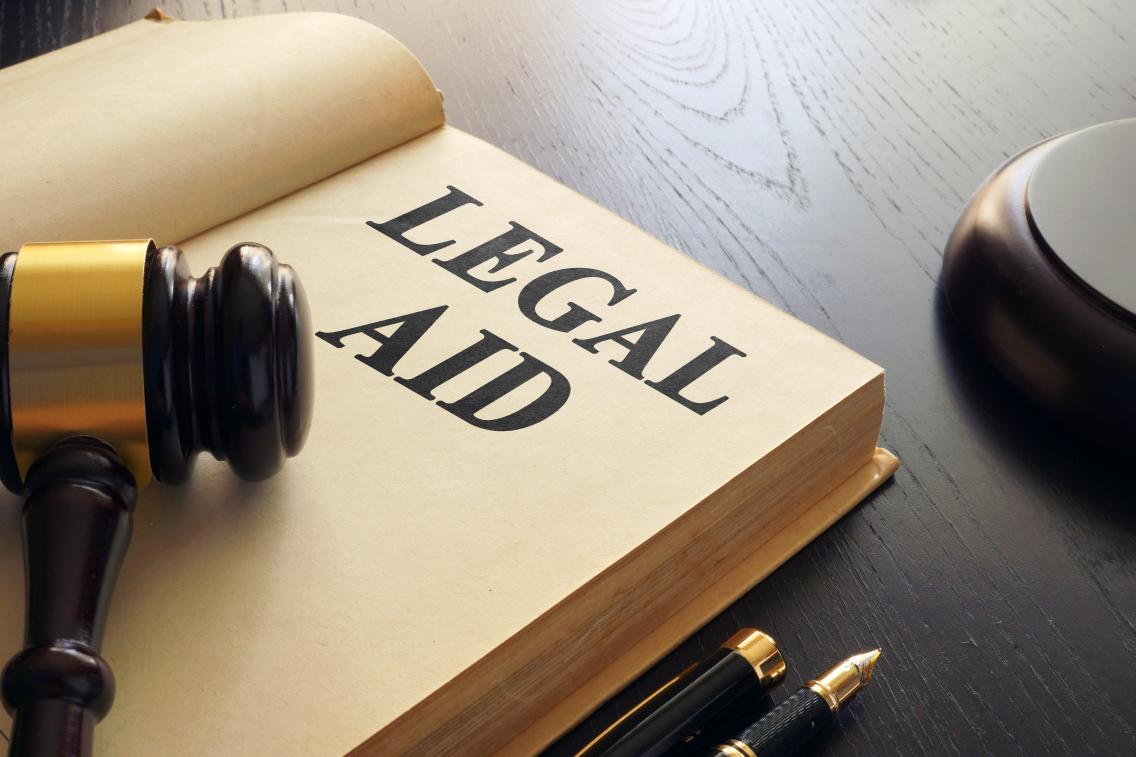
Enhance your legal service provision with expert guidance from our Model Practices & Innovations repository. Access proven methodologies, innovative approaches, and real-world case studies to elevate client representation, improve access to justice, and make a meaningful impact in your community.
Section DropdownEnhance your legal service provision with expert guidance from our Model Practices & Innovations repository. Access proven methodologies, innovative approaches, and real-world case studies to elevate client representation, improve access to justice, and make a meaningful impact in your community.
Section DropdownEnhance your legal service provision with expert guidance from our Model Practices & Innovations repository. Access proven methodologies, innovative approaches, and real-world case studies to elevate client representation, improve access to justice, and make a meaningful impact in your community.

Legal aid organizations should treat those seeking assistance and clients accepted for services with dignity and sensitivity. Effective representation begins with a relationship of mutual trust and respect. A legal aid organization should continually strive to maximize the effectiveness of its services and to achieve meaningful and lasting results on behalf of clients. The examples, models, and resources provided below are aimed to help your legal aid organization:
Explore resources from LSC that can help grantees enhance their legal service delivery models.
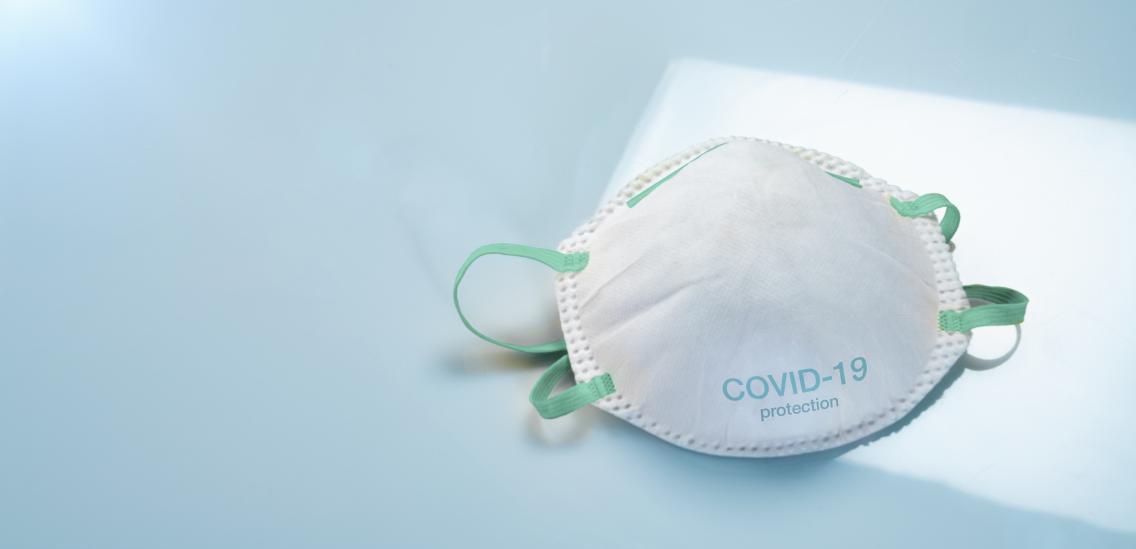
This Model Practices & Innovations case study features two LSC grantees, Idaho Legal Aid Services and Legal Aid of Western Michigan, who helped clients navigate rapidly changing eviction laws during the COVID-19 pandemic.
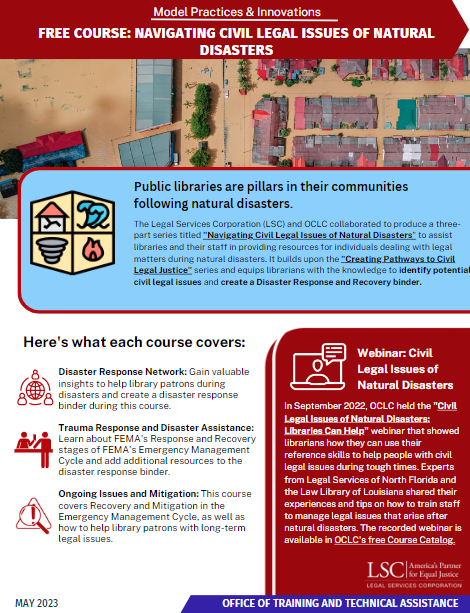
This MPI info sheet provides comprehensive details about the free library trainings offered by LSC and OCLC: "Creating Pathways to Civil Legal Justice” and “Navigating Civil Legal Issues after Natural Disasters.” These training programs are specifically designed for public libraries to collaborate with LSC grantees with the goal of increasing access to legal aid following natural disasters.
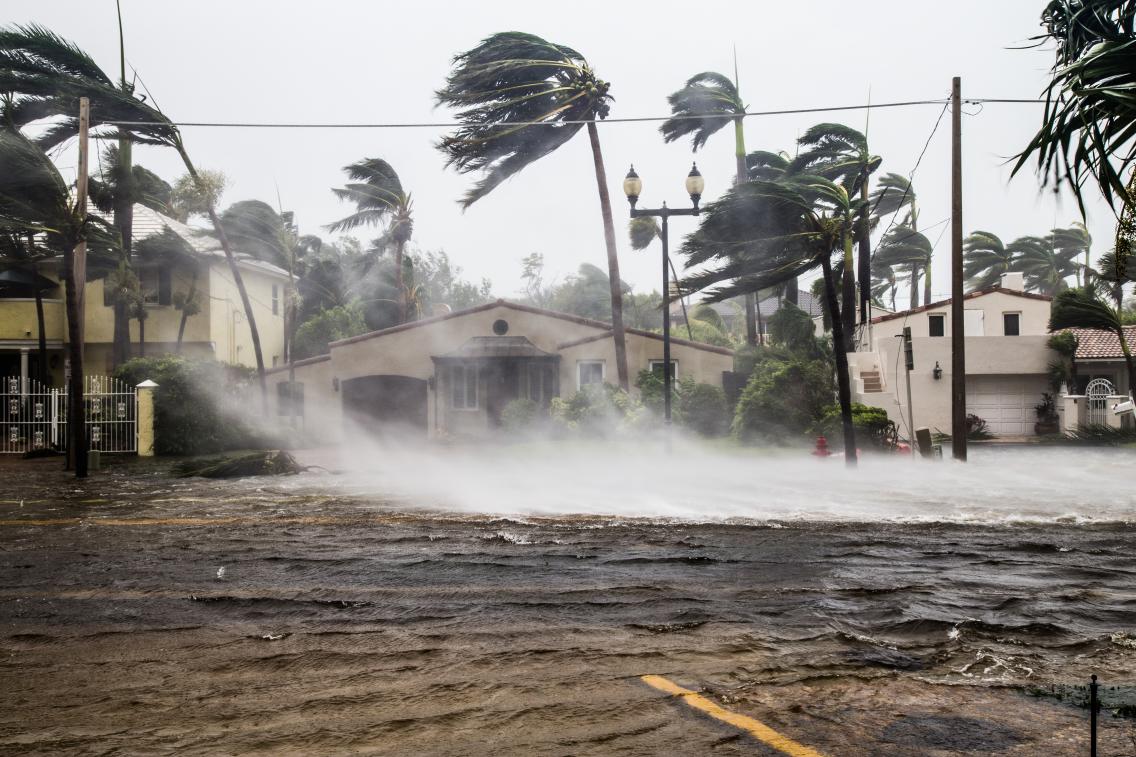
Learn how LSC grantees like Legal Services of North Florida (LSNF) partner with public libraries that can identify their patrons’ legal issues and direct them to LSNF for services.
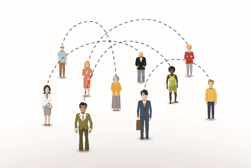
Explore model practice and innovation videos in this YouTube playlist curated by LSC’s Office of Training and Technical Assistance. Topics include client access and intake, conducting outreach to diverse populations, representing clients effectively, engaging volunteers, and others.
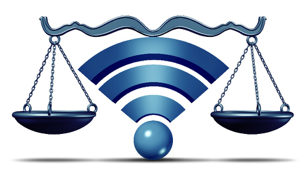
In this MPI article, Legal Services of Northwest Minnesota (LSNM) shares its tactics for assisting low-income individuals who lack access to technology through legal kiosks and Justice Buses. LSNM also provides valuable insights and replicable practics gained from their experiences.

This MPI article features Legal Services of North Florida (LSNF)! LSNF uses a variety of strategies to successfully bridge the digital divide for victims of natural disasters and those isolated by the COVID-19 pandemic
Legal aid organizations can use their websites to notify clients of office hour changes and their latest legal rights via simple website banners and FAQ pages.
Attorneys can reach clients remotely and offer free-and-fast COVID-19 legal information or advice by launching COVID-19 hotlines.
Legal aid lawyers can team up with local medical organizations to address community needs together. Addressing a patient’s legal issues can improve a patient's health outcomes, thereby reducing the patient’s trips to the hospital and healthcare costs. Read this post for more information about how legal aid organizations can create a partnership with healthcare providers aimed at serving their community.
Generally, an organization's first contact with prospective clients is through the intake process. It is essential that the organization's intake system be welcoming to applicants, foster confidence in its services, accurately identify the applicant's legal needs, and promptly determine the assistance to be provided. An effective intake system offers multiple portals for access:
It is most efficient if organizations use an online or telephone triage system to direct persons who are not eligible for services to another service provider early in the process. Clear priorities and case acceptance guidelines are essential to a streamlined system.
Effective use of technology is essential for an efficient intake system. For example, online intake can offer opportunities for low-income people to seek or apply for help outside of office hours and during holidays and save them valuable time in finding out whether they even qualify for free legal aid.
An effective legal aid organization is known to and has the trust of the low-income community in its service area. The organization engages with all segments of the low-income community, including those living in geographically isolated areas, those with access difficulties, and persons with limited English-speaking ability. Special populations include:
Legal aid organizations should also take steps to ensure that they are reaching the underserved populations in their service areas through a variety of means, such as:
Legal aid organizations should strive to offer services in a culturally competent manner to those from diverse cultures in the service area. This effort includes, to the extent possible, having staff who are bilingual in the most frequently spoken languages other than English.
An excellent limited English proficiency plan should outline the procedures for assisting those who speak other languages and ensure sufficient resources to support adequate interpretation and translation services.
The organization should gear legal representation to achieving the client's objectives and obtaining lasting outcomes. To address the community's most pressing legal needs, the organization should focus its advocacy strategically. This effort can be accomplished by:
To ensure high-quality legal services for low-income people in your service area, it is essential to have standards and systems in place that guide for:
Policies for case management can also establish areas of responsibility and minimum expectations for all staff. This effort will ensure regular communication between staff and between staff and management.
Legal aid organizations have utilized several methods to engage volunteers in their work, not only as a way to expand services to clients but also to involve and invest the community in providing access to justice to the low-income population.